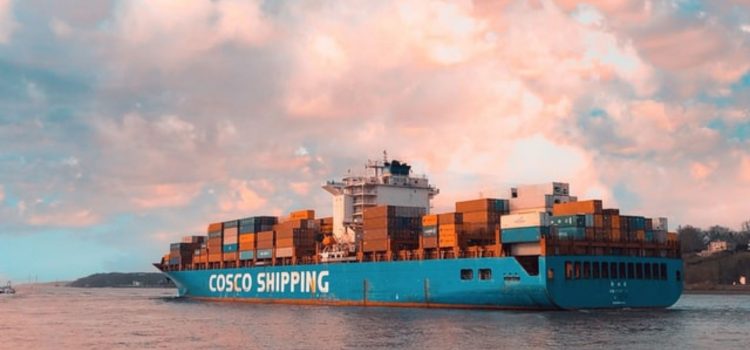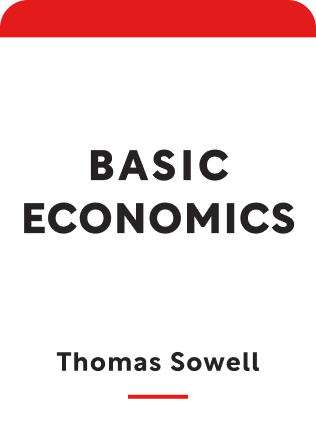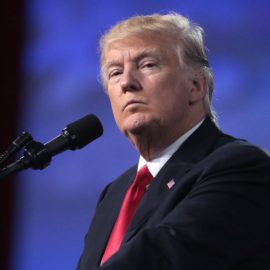

This article is an excerpt from the Shortform book guide to "Basic Economics" by Thomas Sowell. Shortform has the world's best summaries and analyses of books you should be reading.
Like this article? Sign up for a free trial here .
What are the benefits of international trade? How does foreign trade affect the internal job sector?
International trade allows scarce global resources to go towards their most valuable uses. This may mean a loss of jobs in one sector with the creation of jobs in another, but the economy is overall more efficient and the population at large benefits.
In this article, we’ll look at the three primary benefits of international trade: absolute advantage, comparative advantage, and economies of scale.
The Benefits of International Trade
International trade has been one of the major drivers of global economic growth since the 20th century. Let’s take a look at the three major benefits of international trade that have made it possible:
1. Absolute Advantage
Some countries are simply more efficient at creating a good or service – due to climate, geography, or skills. Prices are lower and consumers can enjoy more of it than without trade.
Bananas are grown more cheaply in the tropics because the sun provides cheap energy. In efficient trade, buyers in Iceland can buy cheap bananas from the Caribbean so that Iceland doesn’t have to invest scarce resources in producing bananas at a higher price.
Indian tech support has a valuable advantage in being 12 hours ahead of the US, thus allowing US companies to provide round-the-clock support for cheaper than hiring graveyard shifts domestically.
A prosperous country tends to have more and cheaper capital, which gives it an absolute advantage in highly-capital intensive projects with high fixed costs.
2. Comparative Advantage
A country might be so efficient that it produces anything more cheaply than another country. In this case, it still benefits the more efficient country to focus on what it is relatively more efficient at producing, and to export that in exchange for other goods. This allows more total goods to be produced than if both countries tried to produce everything themselves.
For instance, consider a surgeon who is quite capable at washing his car as well as removing brain tumors. Putting his personal enjoyment of washing cars aside, it’s much better for the surgeon to spend 2 hours in the surgical room than washing his car – he produces more relative value, and can trade the money he earns for other goods.
Here’s an example at a national level. The US and Canada both need chairs and TV sets. Here’s what it looks like if they both produce what each of their nations need:
| Products | US Workers | US Output | US Output/Worker | Canadian Workers | Canadian Output | Canadian Output/Worker |
| Chairs | 200 | 100,000 | 500 | 200 | 90,000 | 450 |
| TV sets | 300 | 60,000 | 200 | 300 | 30,000 | 100 |
The total production of the two countries is 190,000 chairs and 90,000 TV sets.
The US worker produces more chairs and TV sets per worker than Canada does. However, the US has a larger advantage in TV sets per worker than it does in chairs. One US worker can produce double the number of TV sets than the Canadian worker can, while the US worker can produce just chairs just a bit better than the Canadian worker.
Therefore, the US might choose to focus all its workers on TVs instead:
| Products | US Workers | US Output | US Output/Worker | Canadian Workers | Canadian Output | Canadian Output/Worker |
| Chairs | 0 | 0 | 500 | 500 | 225,000 | 450 |
| TV sets | 500 | 100,000 | 200 | 0 | 0 | 100 |
In this case, 225,000 total chairs and 100,000 TV sets are produced, more than in the previous case. Both countries can now enjoy cheaper prices for both products, and trade their surplus goods for what other countries produce.
Here the US has an absolute advantage in producing both products, but Canada has a comparative advantage in producing chairs.
(Shortform note: this is a simplistic example assuming chairs and TV sets have the same value. If US workers produced chairs and Canadians produced TVs, you would end up with 250,000 chairs and 50,000 TVs – not strictly better, depending on the value of chairs vs TVs.)
Likewise, Great Britain does not produce enough food to feed its people. It focuses on its comparative advantages in manufacturing, financial services, and shipping to buy food from other countries. It would cost the British too much in labor and resources to give up its industry to become self-sufficient in food, even if another country’s farmers are not as efficient as British farmers.
This can be heartening for poorer countries. Every nation can produce some products more efficiently than they can produce other products – meaning it has a comparative advantage in something.
(Shortform note: there is an analogy of applying comparative advantage to people. Comparative advantage provides existential meaning to everyone, regardless of your abilities. Even if you feel you pale in comparison to demigod humans who seem better than you at everything, you can still contribute to the economy by working on what you are relatively less bad at.)
Difference in International Wages
Much is said about how American goods can’t compete with goods produced by low-wage workers in poorer countries. In reality, American workers produce more per worker-hour than poorer workers elsewhere; thus American workers are more efficient per unit of output. The efficiency may arise from better machinery, more capital investment, or greater economies of scale.
It’s estimated that the average labor productivity in India is 15% of that in the US. Hiring an Indian worker for 20% of a US worker’s cost would be more expensive.
Furthermore, high-wage countries have been exporting to low-wage countries for centuries. Britain was the world’s largest exporter in the 19th century, despite higher wages than in most recipient countries.
3. Economies of Scale
Some goods require high fixed costs and large volumes to be profitable. Countries that have smaller populations cannot produce goods at a great enough scale to be priced competitively. For example, Australia doesn’t produce its own cars, since its small market makes it unable to compete with efficient, large-scale American or Japanese manufacturers.
Exports enable countries to achieve economies of scale that would not be possible from domestic sales alone. Heineken sells far more beer worldwide than in the Netherlands; Taiwan sells far more computer hardware than the Taiwanese market can support. All countries importing these products benefit from the efficiency and lower prices.
International Trade Restrictions
The same frictions felt for domestic trade apply to international trade as well. Various reasons are given for barriers to international trade, some more accepted than others. In general, when a trade dispute is presented as our country vs theirs, in reality it’s more special protected interest vs general consumers. “Globalization” is a common keyword meant to create fear and uncertainty.
Restrictions can occur in the form of higher tariffs, import quotas, or health and safety rules. While tariffs are transparent, more opaque regulations can increase domestic prices. For example, if you’re a Spanish strawberry exporter, and US regulation on strawberry imports requires a week to get through customs and causes spoilage, then you might as well not export to the US.
Saving Jobs
Superficially, tariffs seem to protect domestic jobs – if you import less of a good that is also produced domestically, then you preserve those jobs. However, this reduces efficiency of all countries, lowering standards of living and prosperity, which reduces jobs.
During the Great Depression, higher tariffs led to retaliatory tariffs by other countries. Thus American farmers lost in net balance, and unemployment worsened.
In the 1980s, steel industry jobs fell from 340k to 125k, prompting restrictions on steel importation. This led to higher prices for steel and all steel-derived products (cars, oil rigs), and thus their ensuing products (shipping, oil), in the US. All these products were now at a disadvantage internationally. It’s estimated that steel tariffs produced $240MM in profits to steel companies and saved 5,000 jobs in steel, while costing $600MM in profits and 26,000 jobs in other industries.
Politically, a vocal special group of 500 thousand people facing large pains (losing jobs in one very focused industry enriched in a geographic area) may have more influence than 100 million individuals with modest gains (cheaper goods and more jobs distributed nationwide). It is also easier for people to empathize with clear transparent losses than with modest systemic benefits.
However, just as automobiles obviated the horse industry, changing international trends (like a country with rising comparative advantages) require shifting of domestic labor to areas of domestic comparative advantage – meaning losing jobs in one sector while gaining in another.
If the EU permitted 100% free international trade, every worker who lost his job could be paid $100,000 in compensation, and the EU would still come out ahead.
Dumping
Dumping is a form of predatory pricing where a country exports goods at low costs to drive international companies out of business, after which it can control prices through a monopoly.
Thomas Sowell cites dumping as pricing below cost of production, but it has also been defined as lower prices than offered domestically in the country of production.
As previously explained, it can be ambiguous what is predatory pricing and what is merely the result of economies of scale. It may make sense for Taiwan to offer lower-priced computer chips to America, which buys 100x the volume that Taiwan does. Production cost can be difficult to determine.
Politically, it’s often easy to accept charges of dumping with murky evidence, pushed by domestic business special interests.
Legitimate Restrictions on International Trade
Surprise! Economists justify restrictions on international trade in a few circumstances – but these are often warped to become counterproductive.
A country that wants to develop expertise in an “infant industry” may block it from competing with more mature foreign competitors. (Shortform example: China did this to great effect in internet technology, stifling Google, Facebook, and Amazon to allow its native Baidu, Tencent, and Alibaba to arise, leading to its own economies of scale and domestic skills.) In practice, however, new industries seldom have enough political muscle to get protection; often old inefficient industries tend to get protection.
For national defense, a country may hesitate to import military equipment from nations that could become enemies in the future, or to export technology to them. However, this rhetoric can be used to protect products only tangentially related to military defense in the interest of “national safety.”

———End of Preview———
Like what you just read? Read the rest of the world's best book summary and analysis of Thomas Sowell's "Basic Economics" at Shortform .
Here's what you'll find in our full Basic Economics summary :
- Why we use money, rather than bartering our services with each other
- Why some nations prosper, while others stay poor despite vast natural resources
- How rent control might actually reduce housing supply and quality






